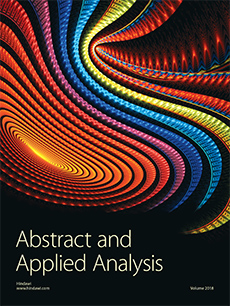Abstract
We generalize A. Borbély’s condition for the conclusion of the Omori-Yau maximum principle for the Laplace operator on a complete Riemannian manifold to a second-order linear semielliptic operator with bounded coefficients and no zeroth order term. Also, we consider a new sufficient condition for the existence of a tamed exhaustion function. From these results, we may remark that the existence of a tamed exhaustion function is more general than the hypotheses in the version of the Omori-Yau maximum principle that was given by A. Ratto, M. Rigoli, and A. G. Setti.
Citation
Kyusik Hong. "Some Inequalities for the Omori-Yau Maximum Principle." Abstr. Appl. Anal. 2015 1 - 7, 2015. https://doi.org/10.1155/2015/410896





